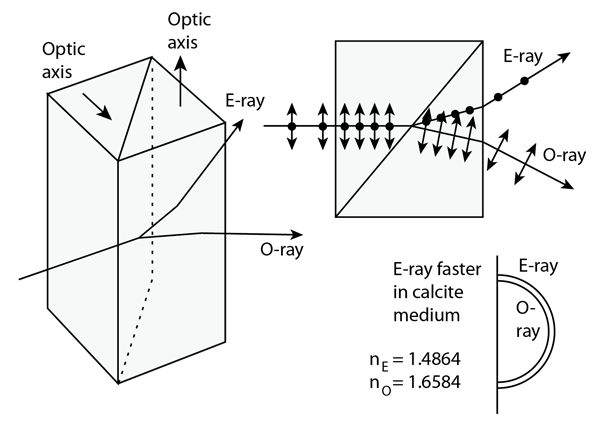Wollaston Prism
The Wollaston prism is a polarizing beam splitter, preserving both the O- and E-rays. It is usually made from calcite or quartz.

The Wollaston prism is made up of two right triangle prisms with perpendicular optic axes. At the interface, the E-ray in the first prism becomes an O-ray in the second and is bent toward the normal. The O-ray becomes an E-ray and is bent away from the normal. The beams diverge from the prism, giving two polarized rays. The angle of divergence of these two rays is determined by the wedge angle of the prisms. Commercial prisms are available with divergence angles from 15° to about 45°. They are sometimes cemented with glycerine or castor oil, and sometimes not cemented if the power requirements are high.
| Application in CD player | Polarizing prisms |
Polarization concepts
Reference
Hecht
Sec. 8.4
| HyperPhysics***** Light and Vision | R Nave |
